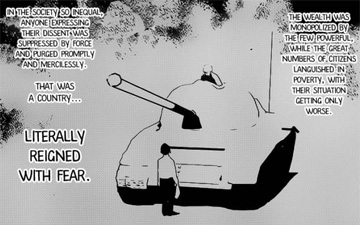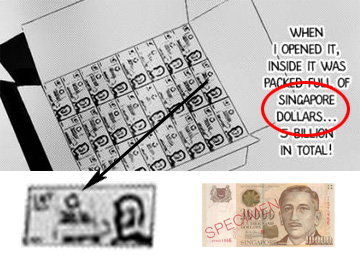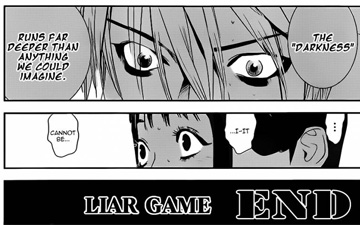|
| |
|
| |
|
|







|
|
TCHS 4O 2000 [4o's nonsense] alvinny [2] - csq - edchong jenming - joseph - law meepok - mingqi - pea pengkian [2] - qwergopot - woof xinghao - zhengyu HCJC 01S60 [understated sixzero] andy - edwin - jack jiaqi - peter - rex serena SAF 21SA khenghui - jiaming - jinrui [2] ritchie - vicknesh - zhenhao Others Lwei [2] - shaowei - website links - Alien Loves Predator BloggerSG Cute Overload! Cyanide and Happiness Daily Bunny Hamleto Hattrick Magic: The Gathering The Onion The Order of the Stick Perry Bible Fellowship PvP Online Soccernet Sluggy Freelance The Students' Sketchpad Talk Rock Talking Cock.com Tom the Dancing Bug Wikipedia Wulffmorgenthaler |
|
bert's blog v1.21 Powered by glolg Programmed with Perl 5.6.1 on Apache/1.3.27 (Red Hat Linux) best viewed at 1024 x 768 resolution on Internet Explorer 6.0+ or Mozilla Firefox 1.5+ entry views: 761 today's page views: 739 (25 mobile) all-time page views: 3386780 most viewed entry: 18739 views most commented entry: 14 comments number of entries: 1226 page created Fri Jun 20, 2025 20:50:57 |
|
- tagcloud - academics [70] art [8] changelog [49] current events [36] cute stuff [12] gaming [11] music [8] outings [16] philosophy [10] poetry [4] programming [15] rants [5] reviews [8] sport [37] travel [19] work [3] miscellaneous [75] |
|
- category tags - academics art changelog current events cute stuff gaming miscellaneous music outings philosophy poetry programming rants reviews sport travel work tags in total: 386 |

| ||
|
The Liar Game manga has finally wrapped up after 201 chapters, which compels us to comment on the end of this popular psycho-social series. Those who would prefer to read through it by themselves and not be hit by the Big Reveal, please stop reading at once, and leave now. ... ... ... Ok, done? This final chapter was dedicated to clearing up the question lingering throughout the first two hundred - who are the mysterious organizers of the Liar Game, which pits randomly-chosen participants against each other in diabolically-designed (usually) winner-takes-all games that tend to reward strategic (and out-of-the-box) thinking (which extends to, as it states outright on the box, judicious lying), with the losers condemned to a lifetime of debt slavery? There have been many fan theories, among the most popular being the Liar Game being a selection process for agents of a national (or, given that this is manga, interstellar) think tank, but the truth turned out to be slightly more prosaic. As it was explained, the Liar Game was based off the novels of a dissident living in an (unnamed) oppressive state, who as many men of letters before him had, used his writings to criticize the prevailing system by letting the readers draw their own conclusions from the situations presented, without openly stating his opposition [N.B. there are many well-known examples of this genre, such as Animal Farm, 1984, Fahrenheit 451, A Clockwork Orange, The Running Man, 阿Q正傳 and for better or worse, the works of Ayn Rand (comic bio)]  But, they were also not going out of their way to be subtle (Source: mangapanda.com) The first two novels had, indeed, made a big impression on the citizens, but the last in the trilogy was then banned, and the author died soon afterwards, officially of an illness - but many suspected otherwise. Among these were his foreign admirers, two of whom undertook to replicate the circumstances of the original novels, and thereby recreate the conclusion of the lost third instalment. They chose to do the filming in Japan due to its ethnic and religious homogeneity reducing the effect of those biases (though some previous rounds featured a cult leader; another unsaid motivation could be the existing prevalence of really weird reality shows there, to the extent that Liar Game wouldn't make anyone blink). To their delight, the reactions of the participants closely followed what the author had predicted from his observations of human nature... but then, on the last day of filming, one of the producers (who just so happens to be of Hong Kong descent, heh) was murdered. As for the other producer, he received a blackmail letter threatening his family, together with a "silver or lead" bribe of five billion yen, which prompted him to abandon the filming, debrief the participants, and flee abroad. By the way, the bribe was paid in... Singapore dollars!  With admirable attention to detail (Sources: mangapanda.com, wikipedia.org) As a proud Singaporean, I'm always delighted whenever we enter the wider cultural consciousness, however this might come about. Just to confirm that this priceless honour was not down to some overzealous translator, I checked the original Japanese raw scan, which after OCR revealed that Singapore (シンガポール - lit. Shingapōru) was explicitly specified. Actually, the choice of our currency was well-reasoned. As Wikipedia mentions, our S$10000 banknote is by some distance the most efficient store of value among currencies by volume, being worth seven times that of the next best (the 1000 Swiss franc note). We can see that the box above contains 24 notes (S$24000, assuming that they are S$1000 notes, since the S$10000 ones are being withdrawn) per layer. Given that five billion yen is about S$58 million, there should be about 2400 such layers, which at an average thickness of some 0.11mm, should fit in a box just 25cm high, as illustrated. Try this with the US$100 (the global standard) or ¥10000 bills (both worth slightly over S$100), and you'd need a large fridge. So, remember, kids - if you're looking to launder a huge sum of money, you know what to do! Ignoring just why the producer's amorphous adversaries would bother buying him off with S$58 million in the first place (one of several glaring loopholes in the series), what happened was that the newly-minted multi-millionaire was shaken enough to disappear for nearly twenty years, moving from country to country. Feeling the onset of old age, however, he resolved to set out to finish what he had started, and contacted the participants of the original Liar Game to act as dealers for the new edition, dangling a carrot of ¥100 million (S$1.15 million) each as payment. This brings us to the happenings of the manga, the grand finals of which had just devolved into a permanent stalemate, thanks to the machinations of resident genius Akiyama. This is, apparently, the moral of the story: that society (not only in said oppressive state, but in general) has turned into a Liar Game in which the powerful seek to divide and deceive the increasingly-impoverished masses, most notably by controlling the media and discouraging critical thinking (hmm). The antidote then, notes the producer, is a "communal trust", as exemplified by the heroine of the game, Kanzaki Nao. His lecture over, the producer then proposes to release the footage with the participants' identities obscured by advanced computer graphics (certainly quite possible), and to everybody's surprise, Yokoya makes his heel-face turn, mice in hand, by being the first to support the idea. Happy ending secured, the protagonists happily await the release of their show on a site that looks suspiciously like YouTube... only to discover that it had been swiftly deleted. The End.  So, got sequel anot? (Source: mangapanda.com) In completely unrelated news, China has just targeted several popular VPNs that allow their users to bypass the Great Firewall, and actually use the Internet as it was intended. On to the reactions. The manga and associated material will likely be quietly pulled from China sometime, of course. Fans of the manga seemed disappointed at the abrupt ending (though this is actually quite common in the industry), as well as the all-too-obvious moralistic overtones in the ending. One of them did however note well that it is mostly pointless to try and censor videos online, since they'll simply get re-uploaded. One did get the feeling that the mangaka was already struggling to come up with fresh new ideas for games. The difficulty was always in coming up with contests with few, simple enough rules declared upfront, such that they could be understood by readers, but which retain enough hidden complexity to admit interesting plots and counter-plots (and also allow ambitious readers to try and figure out winning strategies ahead of time, as with good mystery novels) Under these criteria, some of the best games were used up relatively early in the series. Taking the finale Four Kingdoms game, for example, it does have a straightforward setup: each of the four teams starts with 100 points, and in each round can elect to use up to three Attack and/or Defend actions, each targeted towards a single enemy team. A team is out of the action once they lose all their points, and there can only be one final winning team (which requires the three others lose) If an Attack is not Defended against, the attacked team loses three points; however, each action itself costs one point, so if a team does use all their actions, they will be guaranteed to lose three points each round anyway. Using no actions at all is certainly possible, and very profitable if not Attacked. As with many of the previous games, this turns out to come down to alliances - the baddie Yokoya gets two of the other three teams under his wing, and it is pretty obvious that there is next to no way for Akiyama's team to win in such circumstances - assuming the other three teams are under unified command, the best they can do is to Defend against all three indefinitely (and lose more slowly), while the other teams Attack them only (and lose points at a slower rate) This was indeed what happened, and after Akiyama's team was eliminated, Yokoya allowed his own team to lose too, to fulfil the agreement under which he got the remaining two teams to cooperate with him. It could be noted here that Yokoya's motive, by this stage, was not to win himself, as much as it was to get one over Akiyama and Nao. Unfortunately, he had overlooked one thing - that it was possible for the two remaining teams to enter perpetual stalemate (with some instigation by Akiyama) This was due to the two-team payoff matrix (as helpfully drawn out by Akiyama - first column is the action taken by your team, top row is the action of the opposing team, relative payoffs are indicated for your team):
Akiyama paved the way with some additional chicanery, but his major achievement was to persuade the four members of each team (who were taking turns to input the actions), that the action inputter would bear all debts of the team, if they lost as a result of falling behind in points due to his action. This was done in conjunction with the observation that taking no action was actually a risky move (since it loses out to both Attack and Both), which convinced both teams to play only either Defend or Attack for the remainder of the rounds, until both were stuck at one point, at which neither were willing to do anything, since they were guaranteed to lose then. Of course, it is not actually true that taking no action is unthinkable - given that the teams wound up playing Defend 19 times in total in the last 11 rounds (with the remaining three actions being Attack, ostensibly to "keep the other side honest" about not going for No Action), the reward for No Action is actually very attractive - in a two-player game with lower stakes, it is very likely that the players would have mixed up their strategy a lot more, breaking the equilibrium. Sticking only to Attack/Defend was in this case reasonably realistic, though, because of the agreement - while a player could actually put his team ahead with high probability by playing No Action, he would not actually get any additional reward for doing so. However, if he were unlucky and got hit by an Attack against his No Action, he would lose completely due to the debt agreement. Hence, no-one stuck his neck out. Still, there are at least two problems with this ending:
I think I've raised the issue of various avenues not being explored (e.g. physical ability/restraint was exploited intermittantly in the Musical Chairs game, and moreover there was no good reason how chairs could remain hidden towards the later stages with so many extras available to tail players, etc), but it's still an excellent manga series to get into. And as for oppressive states and media clampdowns "to maintain stability" (ahem)... I'll leave that for now. Next: Novelty And Nochange
|
||||||||||||||||||||||||||||||||
 Copyright © 2006-2025 GLYS. All Rights Reserved. |
||||||||||||||||||||||||||||||||